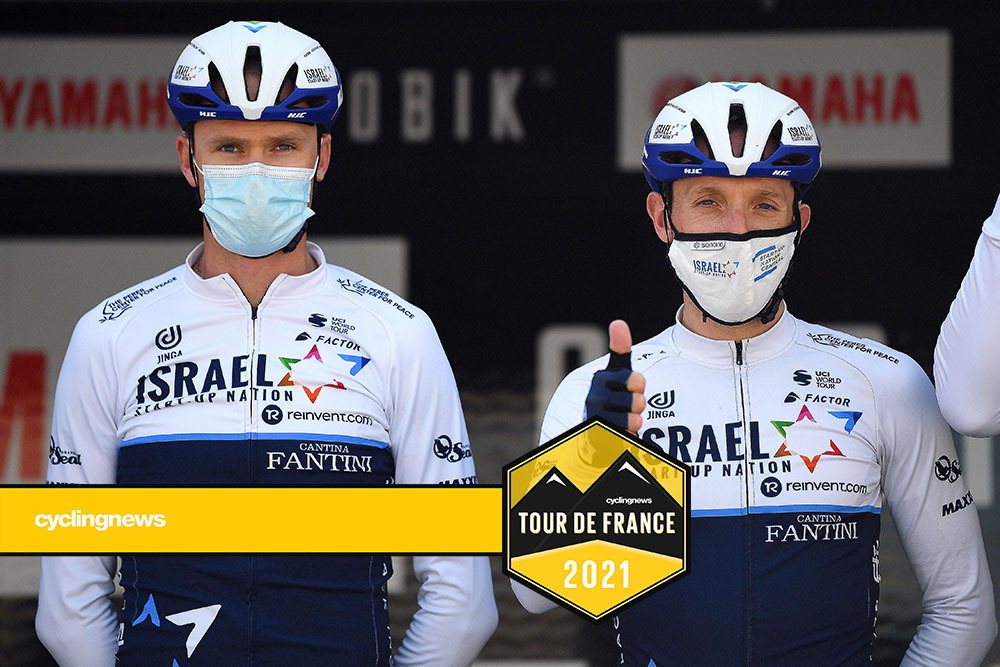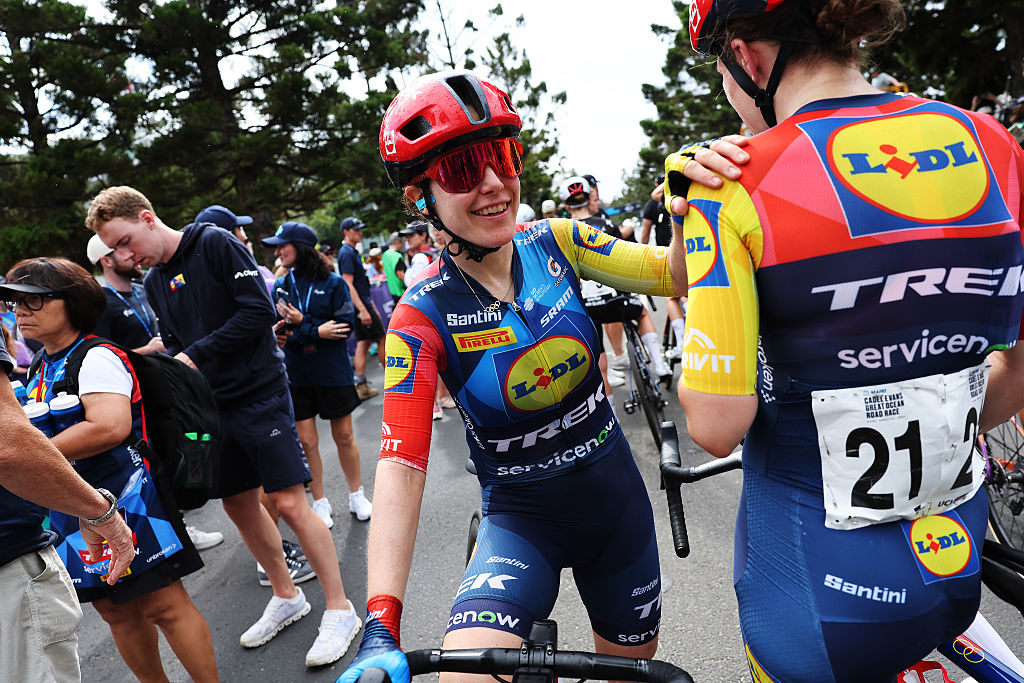Philippa York: I struggle to see Chris Froome as a Tour de France road captain
'Good or bad, the Tour de France will be a new experience for the four-time champion'

The latest race content, interviews, features, reviews and expert buying guides, direct to your inbox!
You are now subscribed
Your newsletter sign-up was successful
There are two main aspects to consider following the announcement that Chris Froome will be Israel Start-Up Nation's road captain for the forthcoming Tour de France. The first - and probably the biggest surprise - is his inclusion at all, given he's been struggling in the preparation races that have led to the Grand Départ in Brest.
That might seem a harsh statement but, as James Shaw pointed out this week, the men's pro cycling peloton is an industry, and if you don't have all the bases covered then it's a difficult place to survive.
The Tour is the spotlight event where any weaknesses are punished in a fairly brutal way. With that knowledge, and the fact that the competition steps up another level in the biggest race of the year, we are all probably aware that Froome’s not going to be anywhere near the level he was when he won four titles. There's a real recognition of that in Michael Woods being named as the team's leader.
This move takes the performance requirements away from Froome, along with the demand for him to be present in the front of the race when the crucial moments happen. Although there's less physical stress from not being the trusted lieutenant, there's still the expectation that, as the road captain, he needs to have the ability to guide and protect the nominated leader into positions that allow him to be part of the decisive moves.
We can have all the sympathy and understanding that Froome has been on a long recovery road since his horrific crash at the 2019 Dauphiné, and it's already remarkable in itself that he's in the peloton again, but things have moved on in the relentless, unforgiving way that pro cycling is notorious for.
Nowadays, the previous Grand Tour titles and major race wins count for very little with this new generation. Listening to the more experienced riders talk about how desperate races have become in terms of the "eat or be eaten" culture, and the risks taken to stay near the front, it’s clear that Froome is not at the level he once was.
The Tour is already a savage environment but it sounds like there's been a raising of the pressures involved to stay in the front at races this season, so you need the physical capacity to cope with that, and I'm afraid Froome will find that difficult.
The latest race content, interviews, features, reviews and expert buying guides, direct to your inbox!
There have been a few occasions this year when he's been kept near the front in the shorter stage races, and if you watched carefully he wasn't in the wind. He was there being guided, protected, shepherded by a teammate, and as soon as he lost them he started to slip back. He hasn't shown the strength to stay there on his own and that's a worry because, as road captain, he will be expected to be in that wind, moving riders up, keeping them sheltered and generally guiding operations - like Luke Rowe or Michal Kwiatkowski at Ineos, the former covering the flatter terrain and the latter coming to the fore in the final hour.
Those are the things Chris Froome is taking on and, while the mental stress might be less compared to being team leader, the physicality of the role is not to be underestimated. Israel Start-up Nation can talk about the Tour being some kind of training or preparation for later in the year - the Vuelta a España for example - but the Tour isn't the place to have some easy days and then test yourself on others. It's as far from that scenario as you can get.
'History tells us champions rarely flourish as helpers'
The other aspect - and one that no one seems to mention when naming Chris Froome to the captaincy - is that he's never been that type of rider.
By that I mean he's never had to give his all for the team early on, get dropped 100km from the finish and struggle to make the time cut day after day. Whenever he hasn't been the team leader, he's been saved for the final hour, so he's been used to a certain level of protection and he's been strong enough to remain part of the GC whilst doing that role. However, with his performance level significantly lower, that isn't going to happen anymore.
Now he'll have to adapt to being in the wind if needs to be and that could be 10 minutes after the flag drops, chasing down an unexpected move, or he could be working on the front for a couple of hours, keeping a gap manageable if the race situation requires that to happen.
Froome has been a winner, one of those characters that dominates and crushes the other leaders, not someone used to going back for bottles or giving up his food. That's why he's been a champion, and history tells us those types rarely flourish in the guiding role that being a road captain requires. Don't see that as a slight, it’s not meant to be. Riders have their own agendas, ambitions and capacities, but I don't see Chris Froome in the subservient role, that's all.
When you look at his selection in the Tour de France team, you have to understand that it comes with other factors involved, rather than just 'is he in good enough shape to make the team?' and 'is he an asset to that team?'. Undoubtedly, he is in certain areas; he has experience, his palmarès earns him a certain amount of respect, and then there's the goodwill that he brings.
It's not a sympathy vote by any means but there's more to him being on the start line next Saturday and, if it goes well, there'll be a huge amount of credit for him and the way he's navigated his recovery. However, if that's not the case then there'll be accusations of politics and of taking the place of someone who would have been better suited to the conditions.
I wish Chris Froome well but, for better or for worse, the 2021 Tour will be a new experience for sure.
Philippa York is a long-standing Cyclingnews contributor, providing expert racing analysis. As one of the early British racers to take the plunge and relocate to France with the famed ACBB club in the 1980's, she was the inspiration for a generation of racing cyclists – and cycling fans – from the UK.
The Glaswegian gained a contract with Peugeot in 1980, making her Tour de France debut in 1983 and taking a solo win in Bagnères-de-Luchon in the Pyrenees, the mountain range which would prove a happy hunting ground throughout her Tour career.
The following year's race would prove to be one of her finest seasons, becoming the first rider from the UK to win the polka dot jersey at the Tour, whilst also becoming Britain's highest-ever placed GC finisher with 4th spot.
She finished runner-up at the Vuelta a España in 1985 and 1986, to Pedro Delgado and Álvaro Pino respectively, and at the Giro d'Italia in 1987. Stage race victories include the Volta a Catalunya (1985), Tour of Britain (1989) and Critérium du Dauphiné Libéré (1990). York retired from professional cycling as reigning British champion following the collapse of Le Groupement in 1995.

